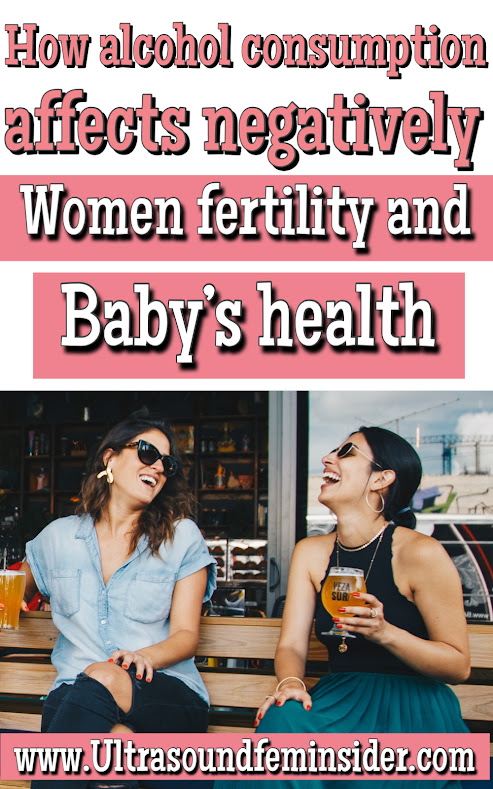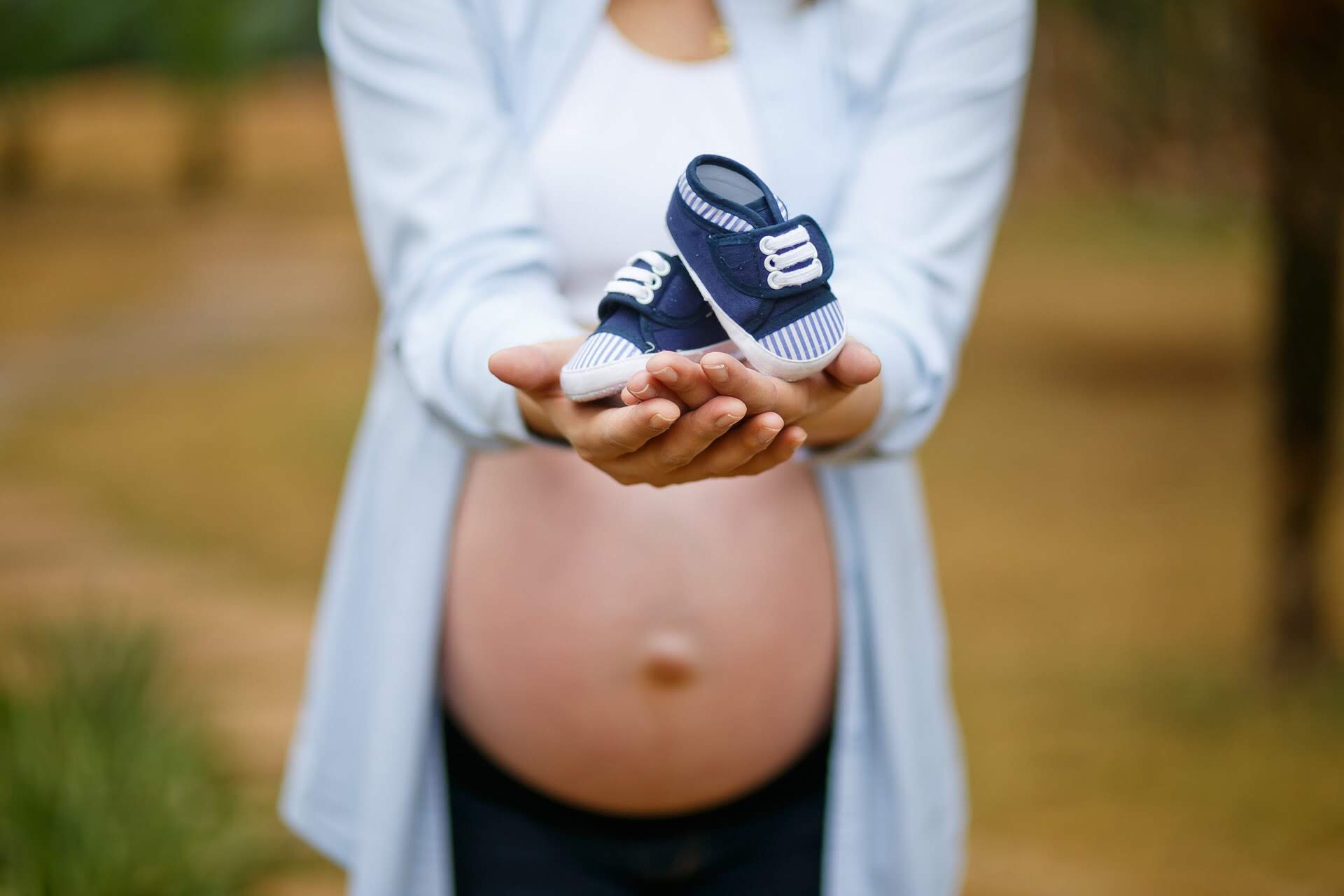Drinking too much alcohol can cause a variety of health issues, from the possibility of having a child with Fetal Alcohol Spectrum Disorder, an increased risk of fetal loss or stillbirth, and a lower likelihood of a live birth and a healthy baby. Therefore, if you’re attempting to conceive, is crucial for you to know the effects that alcohol has in your body. In this article, we are talking about how drinking alcohol affects fertility and a baby. Ready? Let’s begin.
Alcohol and fertility. How drinking alcohol affects fertility and a baby.
What is fertility and how it works?
Pregnancy or the ability to conceive is the sequence of many natural processes.
A woman’s body must release an egg from one of her ovaries in order for her to get pregnant. The fertilization of the egg from the woman’s ovary occurs when a man’s sperm joins with the egg along the way, somewhere in the fallopian tube.
The fertilized egg must pass via the fallopian tube on its way to the uterine cavity, best known as “the womb”. The embryo must adhere to the uterus’s cavity, where the egg will be implanted, and the woman will become pregnant. These are the processes of getting pregnant and conceiving as a couple. A disruption with one or more of these processes can lead to infertility.
If a couple is unable to complete these processes owing to a variety of factors, it is likely that they will have fertility and conceiving difficulties. Only a fertility specialist can detect and explain these difficulties. Infertility is a condition in which you are unable to conceive after a year of trying. Infertility in women can be caused by endometriosis, uterine fibroids, or thyroid problems. Men who are having difficulty conceiving may have a low sperm count or testosterone levels. As you become older, your chances of being infertile increase.
Related articles.
How to track ovulation to get pregnant fast.
Endometriosis. Symptoms, diagnosis and treatment.
Uterine Fibroids, how to naturally treat and prevent them.
These are some of the most common reasons of infertility in men and women. However, in this article, we will focus ONLY on the effects of alcohol on fertility.
Visit our YouTube channel in this link.
What’s the link between alcohol and conception?
It may be more difficult to conceive if you drink while attempting to conceive. This can happen even if you don’t consume a lot of alcohol. Even one to five alcoholic drinks per week can have a negative impact on your fertility. The good news is that, as compared to women who drink more, having one or less drinks per day can improve fertility.
Drinking alcohol before conceiving lowers your chances of conceiving. It can also put your baby at risk of being delivered prematurely or with a lower-than-ideal birth weight.
Is it safe for me to drink while I’m pregnant?
If you’re expecting a child, the guidelines for drinking alcohol are clear. The recommendations suggest abstaining from alcohol entirely. This is because drinking early in your pregnancy raises your chances of miscarriage. There’s also a higher likelihood that your baby will develop health problems. These can include the following:
- Baby low birth weight.
- Premature delivery.
- Afflicted baby with fetal alcohol spectrum disorder (a group of health conditions resulting from your baby being exposed to alcohol in the womb).
- Unfortunately, drinking while pregnant might raise the chances of your baby being stillborn. This emphasizes the significance of abstaining from alcohol entirely throughout this period.
Why can drinking make it more difficult to conceive?
If you’re trying to conceive, alcohol can affect your fertility in a variety of ways. These are some of them:
- Alcohol consumption can affect your estrogen levels (a female reproductive hormone).
- Can lower the quantity of healthy eggs, you still have (sometimes known as your ovarian reserve).
- Ovulation changes, which can lessen your chances of becoming pregnant.
Reducing alcohol consumption is also a good idea if you have polycystic ovarian syndrome (PCOS). This is due to the fact that drinking too much alcohol might cause you to gain weight or have an adverse influence on your blood sugar levels. Both of these factors can exacerbate PCOS symptoms. If you have PCOS, some data suggests that losing weight can help you conceive, so cutting back on alcohol could be a simple method to help.
Related article about PCOS you might like to read after. All about Polycystic ovarian syndrome or PCOS.
Is alcohol harmful to sperm?
Yes. Alcohol can lower testosterone levels as well. Testosterone is a sex hormone that affects several aspects of the male body, including fertility. Testosterone deficiency might affect the quality and quantity of sperms. The good news is that when you cut back on your alcohol consumption, your sperm quality improves immediately.
We also know that if you routinely consume alcohol in the months leading up to your partner’s pregnancy, your kid is at a higher risk of developing health problems. This includes the possibility of them acquiring a cleft lip and palate.
Heavy drinking appears to be more responsible for these problems than modest drinking. However, there are hazards associated with any level of drinking. As a result, once you begin attempting to conceive, you and your spouse should strive to stay away from alcohol totally. If you do decide to drink, try to limit yourself to the recommended 14 units per week.
How alcohol affects a baby during pregnancy.
The teratogenic effects of alcohol use during pregnancy are well documented. Alcohol readily crosses the placenta to the amniotic fluid and fetus. The fetus will typically be exposed to higher concentrations of alcohol than the mother due to accumulation of alcohol and its metabolites in the amniotic fluid, and comparatively reduced fetal metabolic enzyme activity. Some proposed mechanisms of teratogenicity include impaired antioxidant capability, increased free radicals and reactive oxygen species with resultant increased apoptosis in fetal brain tissue, putting your baby at a higher risk of suffering from Fetal Alcohol Spectrum Disorders (FASD), which are caused by alcohol exposure in utero, include fetal alcohol syndrome (FAS), partial fetal alcohol syndrome (PFAS), alcohol-related neurodevelopmental disorder (ARND) and alcohol-related birth defects for summary of characteristics). FASD represents a continuum of disease characterized by behavioral and cognitive deficits, craniofacial anomalies, and growth retardation.
Your health before and during pregnancy has also a significant impact on your child’s future health. Pregnancy puts your body under a lot of stress. Additionally, staying as healthy as possible prior to conception can lower your risk of difficulties. Alcohol consumption might increase your chances of developing obesity, diabetes, and high blood pressure. All of these factors can make it more difficult for your body to cope with the demands of pregnancy.
So, if you’re expecting a baby in the next three to six months, strive to live a healthy lifestyle as much as possible. This could involve things like getting more exercise and eating a well-balanced diet, in addition to avoiding alcohol. You should also talk to your doctor about any existing health issues you may have.
Sharing is caring.

How much alcohol is too much?
In the run-up to pregnancy, the occasional drink on a special occasion is unlikely to cause any problems. Don’t worry if you find out you’re pregnant after a period of heavy drinking. Any concerns you may have should be discussed with your doctor or midwife. The most important thing is to stay away from alcohol once you find out you’re expecting.
If you’re worried about how much you’re drinking and you’re planning a pregnancy, talk to your doctor. You’ll be able to obtain the help you need to handle any alcohol problems you have before becoming pregnant.
Related articles.
Is Covid Vaccine Safe During Pregnancy?
Tender breasts during pregnancy. Causes and remedies.
Tips to prepare for a healthy pregnancy.
Foods To Avoid During Pregnancy.
Final thoughts about How drinking alcohol affects fertility and baby.
As we all know Infertility is defined as not being able to get pregnant or conceive after one year or longer of having unprotected sex with your partner. Unfortunately, approximately 12% of couples in the U.S. experience difficulty conceiving or impaired fecundity. As alcohol is the most widely used recreational substance, it is important to understand any deleterious effects that alcohol has on human reproduction.
As I mentioned previously, the consumption of alcohol is widespread in the United States. Given that a large proportion of the drinking population is of reproductive age, it is not uncommon for couples who are trying to conceive or for women who are already pregnant to consume alcohol on a regular basis. Alcohol use is linked to a number of reproductive problems, including the possibility of having a child with Fetal Alcohol Spectrum Disorder, an increased risk of fetal loss, and a lower likelihood of a live birth. The good news is that, if your infertility issues are related to the consumption of alcohol is totally reversable for men and women.
I hope this article helps, check out my other articles to get more information about fertility.
Zadi, xo
Disclaimer: The medical information on this post is for educational and entertainment use only. Under no circumstances, this information is to replace your doctor’s advice or to treat any disease. For proper care, always visit your doctor.










[…] How Drinking Alcohol Affects Fertility and a Baby. […]